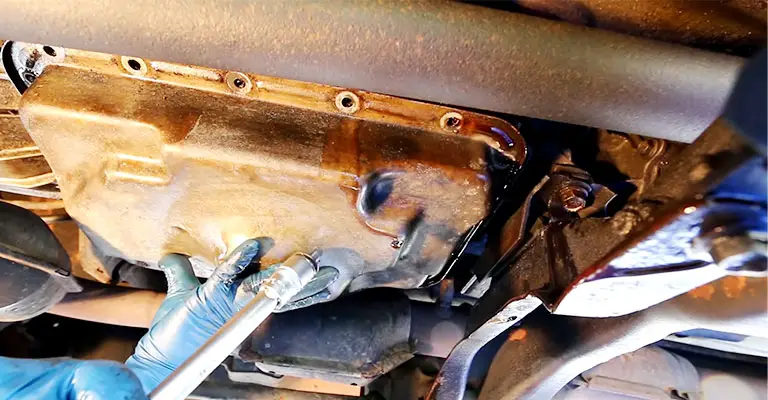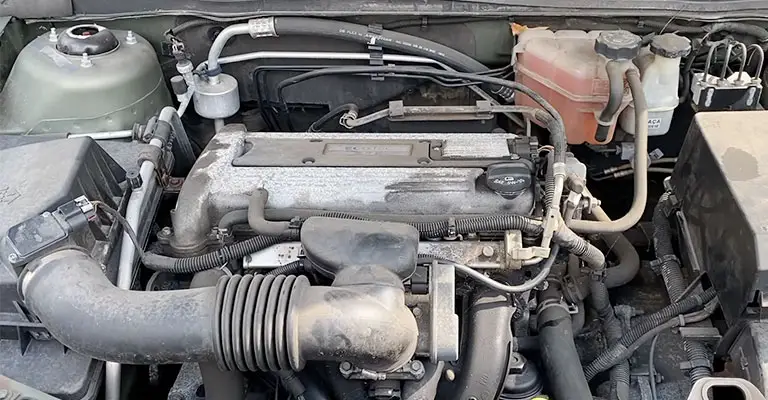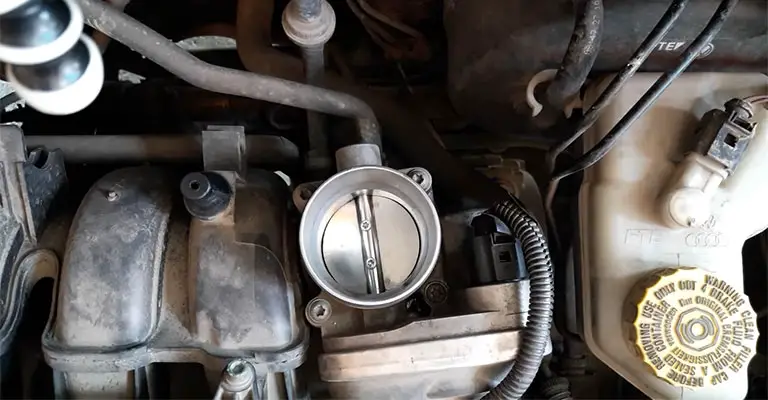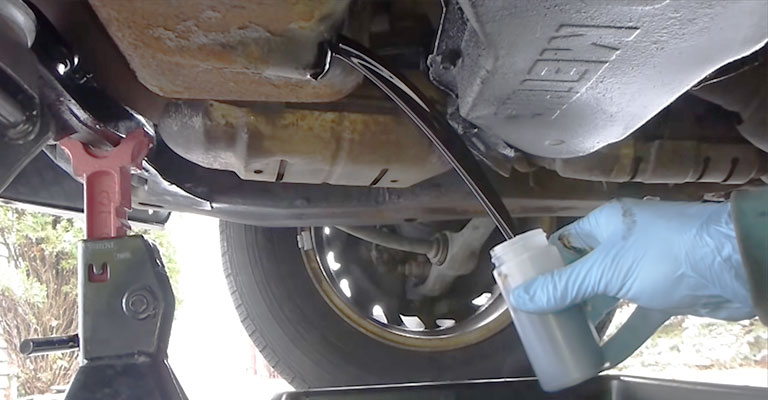Many people tend to mix transmission fluid with engine oil; some of them do it accidentally, and some do it on purpose. Since transmission fluid, especially ATF contains detergents, some people recommend mixing a little bit of it with engine oil to clean the engine. But, can transmission fluid damage your vehicle’s engine?
The answer is – no, it will not damage the engine instantly. But it can do some damage under certain circumstances. So, it is highly recommended you don’t mix it with engine oil.

Will Transmission Fluid Damage Engine?
Whether the transmission fluid will damage the engine or not will depend on some factors. Such as the amount of transmission fluid you have put into the engine oil, the type of the engine and type of the transmission fluid, etc.
The amount of Transmission Fluid
If you accidentally put a small amount of transmission fluid into the engine oil, you should not panic. Because a little amount will not harm your engine straight away. You can go on with transmission fluid mixed with the engine oil for a few days. However, it is better to get your oil changed as soon as possible.
That is because transmission fluid and engine oil have different properties. Leaving the fluid for too long may damage your engine. Besides, if you have put a large amount of transmission fluid in your engine, say more than a quart of engine oil, drain it as soon as possible. Having too much fluid in the engine may cause the seals to blow out.
Type of the Engine

Usually, for a regular engine, a small amount of fluid will not create any mishaps too quickly. If you are ended up with a little fluid in your engine, and you are going to drive for a small distance under favorable conditions, you should get through it without any problem.
However, if your vehicle has a turbocharged engine, having transmission fluid in the crankshaft may cause serious problems. In that case, change the fluid along with the filter before you start driving your vehicle. Also, it is not advisable to operate with transmission fluid in the engine if you are driving under extreme operating conditions.
Type of the Transmission Fluid
There are different types of transmission systems out there and they use different types of transmission fluids. Automatic Transmission Fluid (ATF), which has a thin consistency is used in vehicles with an automatic transmission system. Some vehicles, however, use a heavier fluid than ATF.
Heavy transmission fluids contain anti-foam agents in them. Such agents are not compatible with high temperatures created inside the engine while in operation. As a result, the engine may break down and can suffer serious damage over time.
How Transmission Fluid Can Damage Your Vehicle’s Engine
In the past, it was a common practice to use transmission fluid in a small ratio to engine oil. Especially, it was used in GM engines to quieten the lifter. Modern-era engines are more advanced than past engines. Hence the lubricants used in them must withstand high temperatures and should cope with fuel efficiency and emission standards.
So, it is not a wise approach to use transmission fluid with engine oil today. Especially, when you are flushing your engine, use products that are made for engine-flush operations. Transmission fluid can damage your vehicle’s engine in many ways. Such as:
Decreased Cleaning Power

ATF is not exposed to extreme conditions like engine oil. It doesn’t have to deal with high levels of combustion byproducts and contaminants. As a result, ATF has less detergency than engine oil. Hence, mixing it with engine oil can reduce the cleaning power.
Reduced Wear Protection
Engine oil contains supplements that reduce friction and dissolves piled-up sludge over time. Hence, it reduces wear and prevents the deposit of debris. This property of the engine oil works bit by bit over time.
Adding a fluid with different properties can alter the balance of the supplements of engine oil. Thus, the efficiency of the oil gets reduced. As a result, the wear protection provided by the engine oil gets hampered.
Change in Engine Oil Viscosity

Transmission fluid and engine oil have different viscosity. When transmission fluid is mixed with the engine oil, the engine oil’s viscosity changes. Viscosity is a vital property of an oil that influences its efficiency. Hence, altered viscosity can reduce the efficiency of the engine oil.
ATF is fairly thin compared to engine oil. Adding ATF with engine oil can break the consistency of the oil and make it thinner which can be unsuitable for the engine. The following things can happen in this case:
- The oil can leak past the valve stem seals which can cause severe smoke and a burning smell.
- The oil can even leak through the small gap around the bearings. This will hamper the stability of the oil pressure inside the engine.
- Low oil pressure can cause the lifters to collapse.
FAQ
1. Is it safe to put transmission fluid in your oil?
Answer: Transmission fluid isn’t intended to be mixed with oil. Ideally, it is better to use an engine-flush product that is meant to be used for that purpose. Transmission fluid can increase wear and reduce the efficiency of the oil. The low detergency or Automatic transmission fuel also reduces the cleaning ability of engine oil.
2. How long can a car run without transmission fluid?
Answer: A car can run about 10 miles on a low or zero level of transmission fluid. Nonetheless, it is too risky. Lack of transmission fluid may hinder the smooth gear shifting operation and increase friction. As a result, you may end up with partially or completely jammed gear. The car might not start properly also.
Bottom Line
Though a little amount of transmission fluid in the engine may not break down your car, it is better that you do not mix it with engine oil. Even so, both are oil, and each of them is developed for specific purposes. You may operate your car temporarily with it but change the oil as soon as you get the chance.
Leave a Reply